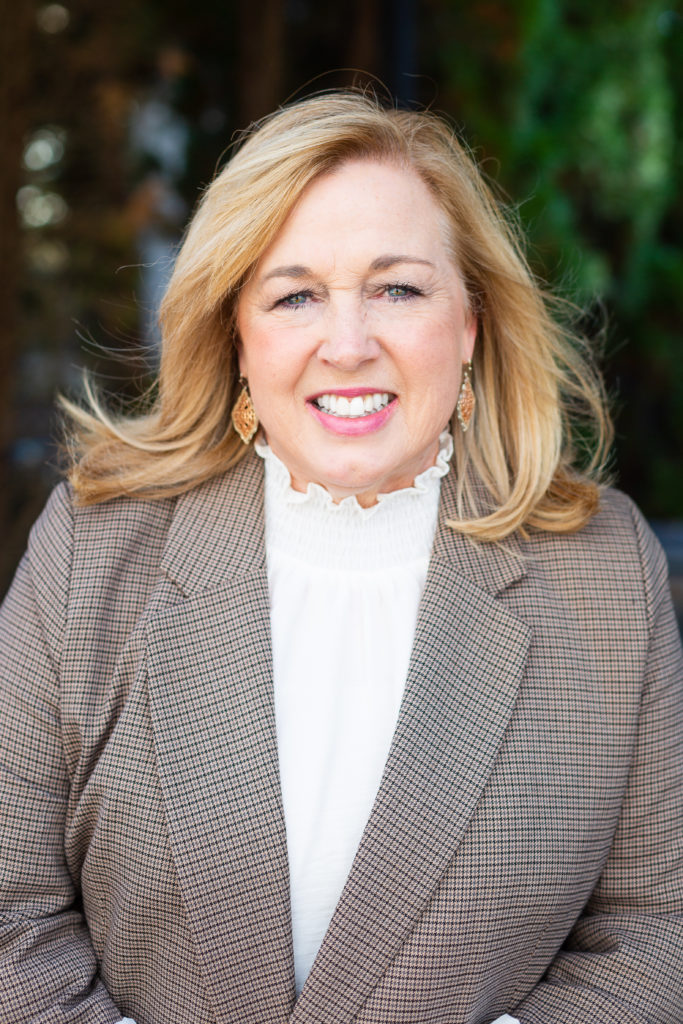My first job after graduating from college was a marketing position with a financial institution. I was barely twenty-two years old, and I knew nothing about car loans or investments. I scraped by with a B in accounting. Clearly, I was no expert in finance, but I jumped into my work with great enthusiasm. What more did I need to know other than having a modest savings account and a checking account I managed to keep in the black?
Within six months, I was promoted, but my lack of knowledge came crashing down when I published a balance statement of our business in a large metropolitan newspaper. The president called me into his office and pointed out a glaring mistake—the assets did not balance with the liabilities. Hmmm. Maybe that’s why they called it a “balance” sheet! I was mortified and my ignorance of finances was on display for the world (or at least I thought the entire world was paying attention). Thankfully, I was gently corrected and given another chance to learn not to pretend to know something I didn’t.
Maybe you’ve been in a similar position. While your mistake may not have been published, most leaders have found themselves in situations where they don’t have all the answers. Maybe you’ve been asked a difficult question about Scripture or asked to perform a task you feel ill-equipped to fulfill. And let’s be transparent—you might still be acting like you have the answers when secretly you are completely in the dark. So, how can leaders be O.K. when they don’t have the answers? Here are a few things I’ve learned since that embarrassing day from years ago.
First, display humility and admit when you need help. Peter was writing to leaders in 1 Peter 5 when he reminded them, “All of you clothe yourselves with humility toward one another, because God resists the proud but gives grace to the humble” (v. 5). Peter was referencing Proverbs 3:34, which makes his words reinforce an ageless principle—we all need grace and humility, and we all need to give grace to others with a humble spirit. Remember it’s OK to humbly tell others when you don’t have the answer. I ate some humble pie with my financial ineptness but was extended several more years of opportunities to learn from my mistake.
Second, be honest about not knowing the answer. You might ask how this is different than being humble. I would say humility is the posture of our inadequacy and honesty is the action of our inadequacy. Proverbs 12:22 says, “Lying lips are detestable to the LORD, but faithful people are his delight.” My face usually gives me away—I’ve never been very good at lying. I don’t consider this a bad thing. But if you struggle with pretending to know the answer, consider the purity of your heart. This could be as simple as not knowing the answer to a question about the Bible. If I’m leading a small group and I am struggling with answering someone’s questions, the best thing I can do is simply say, “That’s a really great question. I need to study it a little more. Would you help me find the answer and give me a few days to do some research on that topic?”
Asking that last question brings up the third point, which is, “Am I willing to spend time learning the answer?” Proverbs 1:7 reminds us, “The fear of the LORD is the beginning of knowledge; fools despise wisdom and discipline.” One of the things I’ve learned from younger leaders is that when they don’t know the answer, they are quick to use their computer search engines to find an answer. It makes me smile because I didn’t have this technology as a younger leader. Now I embrace it. It might mean taking a class or purchasing a book, but sometimes you can find a video on YouTube! Even so, make sure you have wisdom when it comes to reliable sources trusted by experts, especially when it comes to asking questions about the Bible. After my mistake with the balance sheet, I actually took a college course on finance. It was worth the investment of learning more about the work I was around. And it didn’t hurt that my roommate at the time was an accountant. She sat me down and tutored me on some of the basics of accounting.
Fourth, do I create a place where others feel safe to ask questions? As a leader, give your team time to ask questions and remind them it’s OK if they don’t have all the answers. Most of us probably don’t say, “That’s a dumb question,” but do we offer patience and compassion to those who are still learning? Do we make time during meetings for others to ask questions? 1 Corinthians 13 is often called the “love chapter” and many times used in the context of marriage. But when you closely look at the previous chapter, Paul is addressing those in leadership. Leaders love those they lead, and 1 Corinthians 13:4 says, “Love is patient, love is kind. Love does not envy, is not boastful, is not arrogant.” As a leader, you create safe spaces for asking questions by loving those you lead with patience and kindness. There is no room for arrogance or insensitivity.
Finally, but the most important thing to consider when you don’t know the answer, is to go to the One who does. Years ago I memorized James 1:5, “Now if any of you lacks wisdom, he should ask God—who gives to all generously and ungrudgingly—and it will be given to him.” When I need wisdom and direction for my life, I need to first seek the Lord. I may not find out how to put together a balance sheet in God’s Word, but the Lord can gently guide my heart to have a teachable attitude and direct my path in the way He wants me to go. My unawareness of having all the answers and my vulnerability to accept it puts me in the posture to depend on Him. And that’s a good place to be.

Kelly is the Manager of Magazines/Devotional Publishing and Women’s Ministry Training for Lifeway Christian Resources. She is the author of Ministry to Women: The Essential Guide to Leading Women in the Local Church and contributor to the Lifeway Women’s Bible, as well as the Lifeway Women Advent and Easter studies. In addition, she is the cohost of the MARKED podcast for Lifeway Women. She has a Master of Theology degree from Gateway Seminary and is currently pursuing her Doctorate in Ministry degree.

